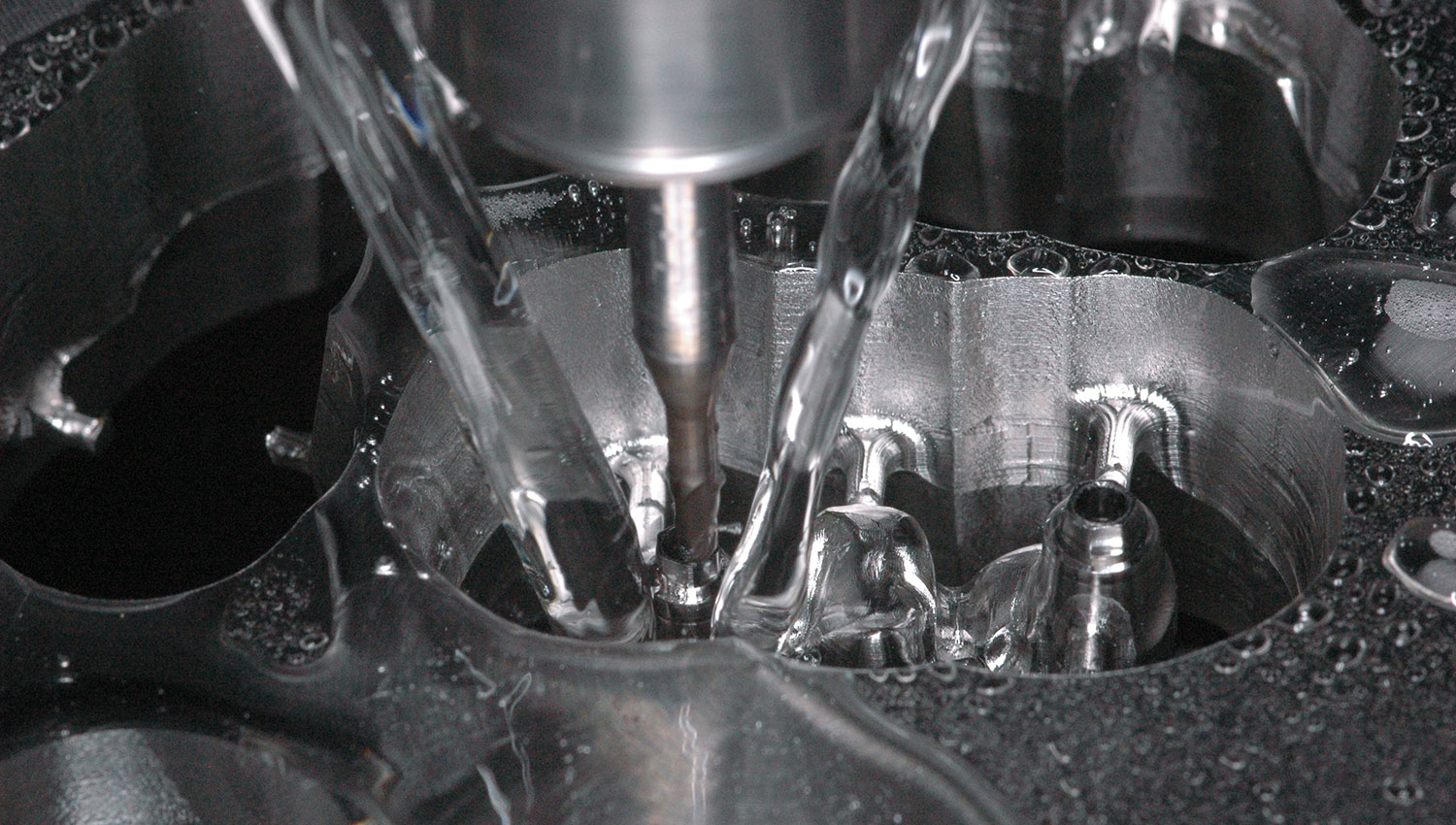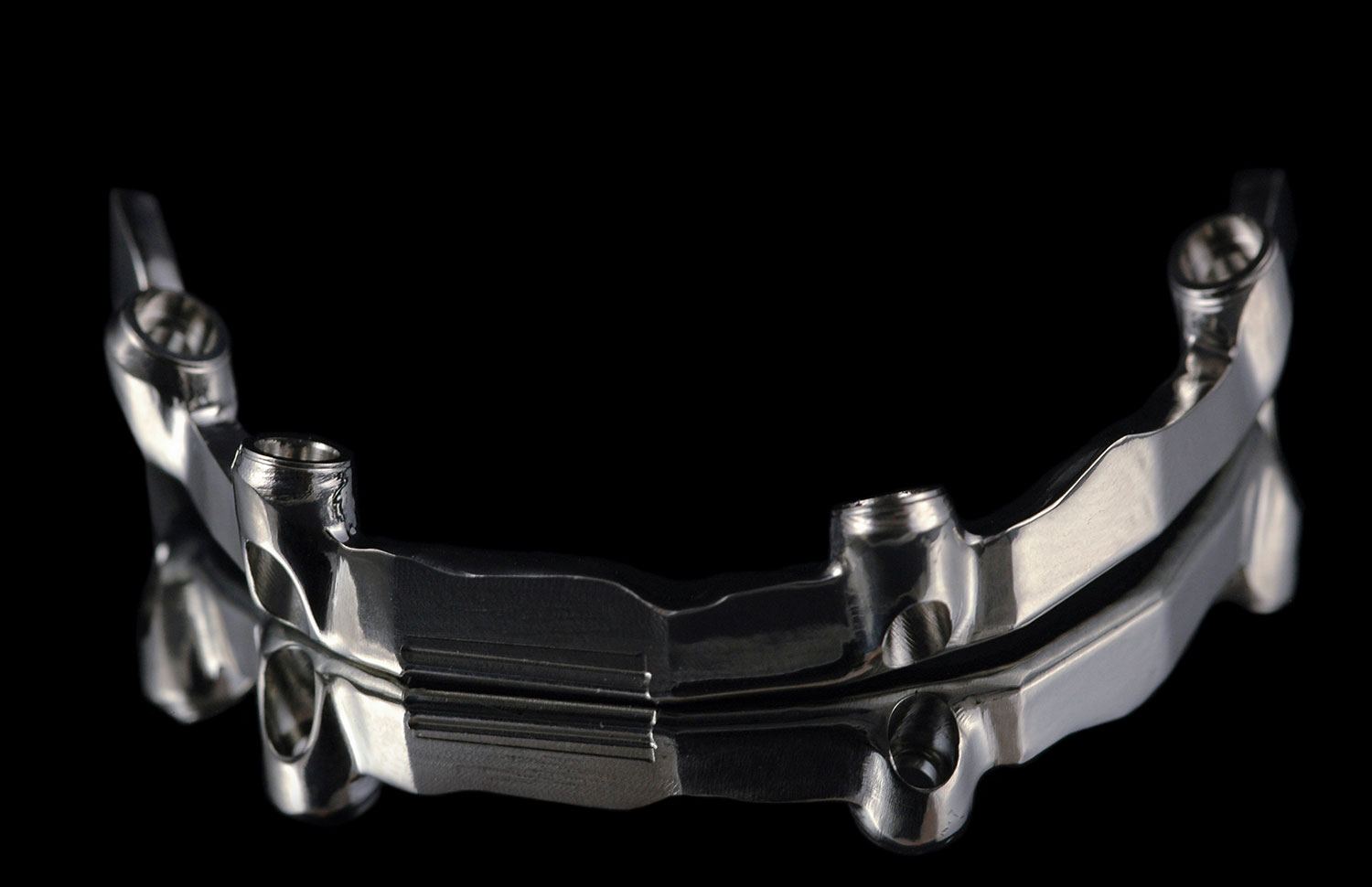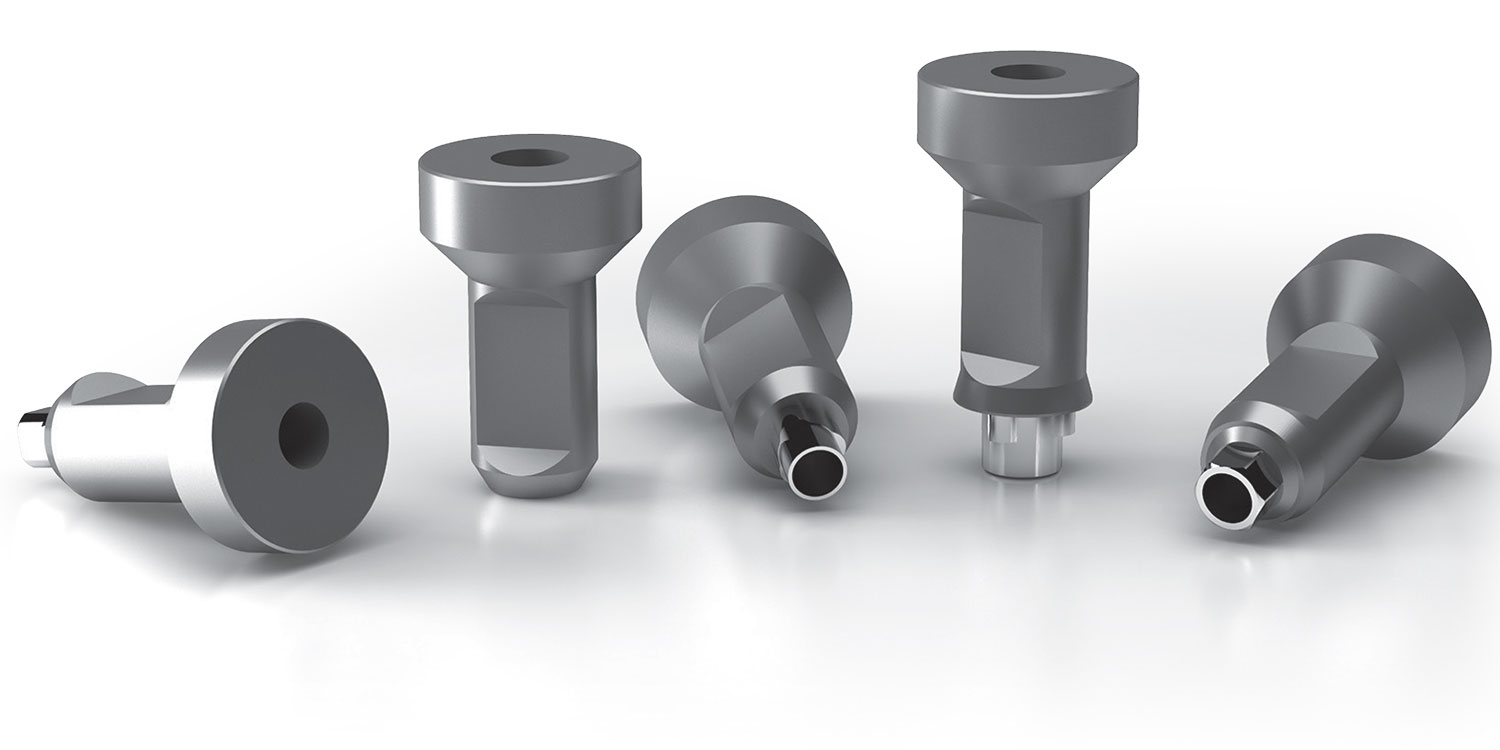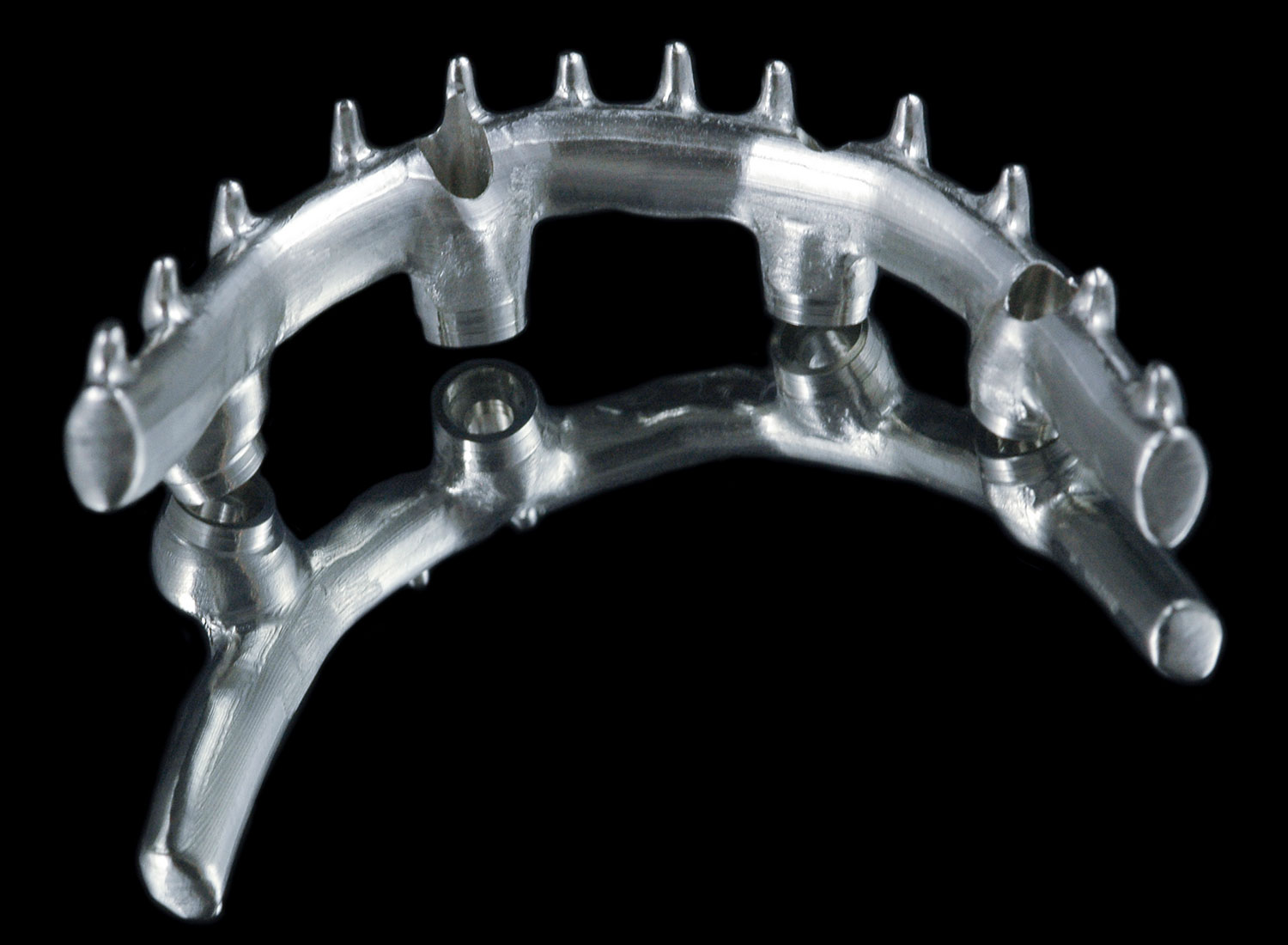-
PHONE
+39 0522 964949 -
PRICE LIST
Ask for the price list
Proxera was founded as a Laser Melting service and milling centre with the aim of being at the core of the digital revolution launched in the dental technology sector by CAD-CAM technology.
Computer-aided manufacturing offers both the possibility of adopting the innovative Laser Melting technology (commonly used for the manufacture of bridges, crowns and partial removable dentures ) and the possibility of machining, blocks of industrial material using CNC.

The milling of bars on implants for screw-retained fixed dentures, using 5-axis industrial machining centres makes it possible to obtain perfectly uniform, high-quality structures with a consistency of result that is difficult to achieve with traditional lost-wax casting technology.
The digital CAD-CAM process features the following benefits: it reduces the number of steps from plaster to structure and significantly increases accuracy. This results in the absence of tension and, therefore, in complete passivity of the final denture.
Proxera has optimised the process for the production of individual elements and Toronto bars that can be screwed directly onto implants.
The centre provides a generous collection of free downloadable libraries for design and Scan Abutments suitable for measuring with extreme precision the position of the endosseous implant. Each library has been carefully tested and associated with a specific machine path to guarantee absolute precision of the result, even for the most complicated implant connections.

Each machining operation is tested on analog samples before being delivered to the laboratory and is supplied with the screws required for correct assembly on the model to support finalisation.
With Proxera it is also possible to produce milled dental semi-finished products with implant connections for bonding. From the point of view of milling by machine tool, the same precision, care and quality control is guaranteed as for a semi-finished product for direct screw-retained technology.
In the case of a semi-finished product required for bonding, Proxera will also supply the T-Bases necessary for correct insertion on the analogue embedded in the model or on the patient's implant platform.
Scanbody or scan abutments are indispensable for obtaining the position of the implant chosen by the clinician with absolute precision.
Proxera has tested and selected a wide range of Scanbody both in the LAB bench top versions for models, and in the CLINIC version used for intraoral scanning.
Proxera formalised the entire process, from scanning to finishing the denture following milling with a 5-axis CNC industrial machine. The use of Scanbody Proxera ensures a certain and absolutely precise result.

Digital workflow is the tip of the iceberg of a revolution that has been affecting the industry for years.
Laboratories are growing in size, with many of them working even for colleagues who are more reluctant to change. Clinics are structuring themselves to increase efficiency by employing dental technicians directly.

An organised structure such as the modern digital laboratory requires not only a colleague-to-colleague, technician-to-technician relationship, but also a relationship between dental technician and dental technician specialising in the production of semi-finished products.
The concept of the milling centre is evolving from a commodity for those who cannot afford the equipment to a set of extremely vertical and complex skills closer to the Factory and Industry.
Proxera is the benchmark for production because it had this mind-set engraved in its DNA even before it came to market.
© Copyright 2021. All Rights Reserved. Proxera S.r.l. - Via Marchesi, 1 - 42022 Boretto (RE)
C.F. / P.IVA / Reg. Imp. RE 02741880351- R.E.A. 309389- Cap. Soc. € 30.000,00 i.v.a.
Information on the processing of personal data | General terms of sales | Cookies Policy